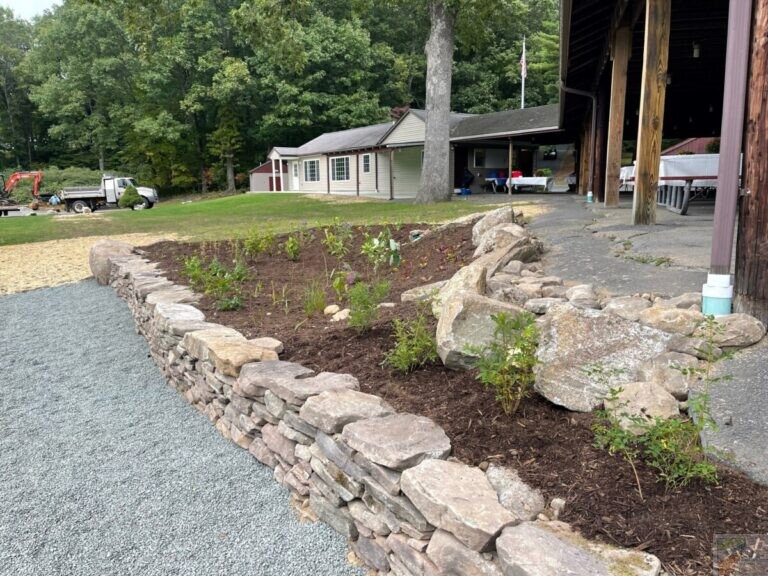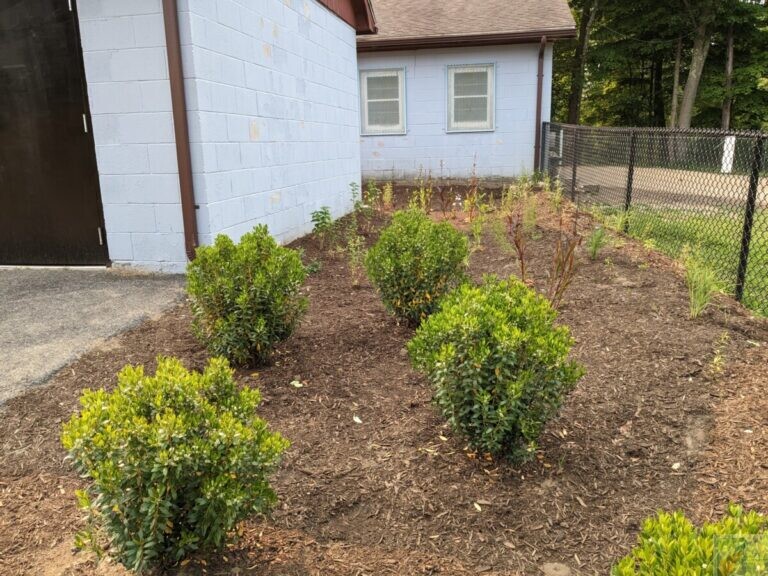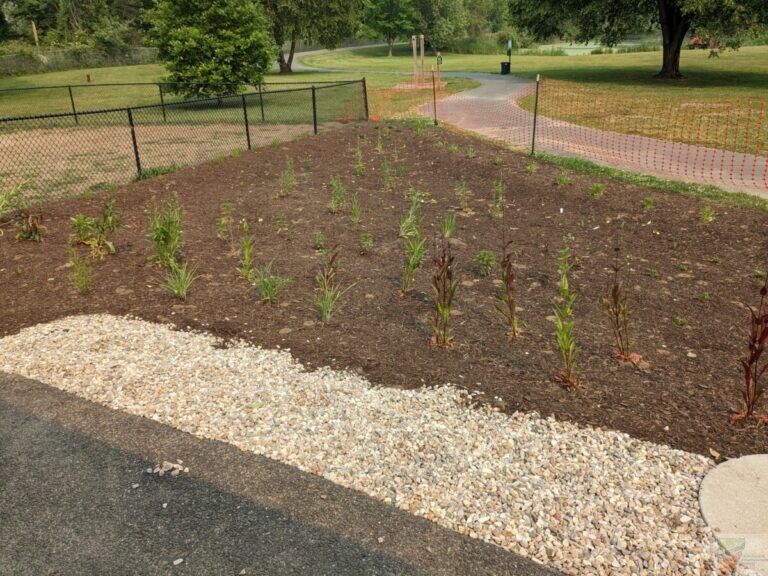Since January 2021, NWCD has been working to create green infrastructure at Meckauer and Bennett Parks in Bethel along Limekiln Brook, a designated impaired watercourse. NWCD’s partners in this project are the Town of Bethel, Housatonic Valley Association (HVA), Earth Tones Native Plant Nursery, CT DEEP, and EPA.
Funding came from a US EPA Clean Water Act Section 319 Nonpoint Source grant, administered by CT DEEP, and is designed to underwrite implementation projects to mitigate nonpoint source pollution (NPS). NPS is pollution that originates from the built landscape, including home grounds, agricultural fields, and all impervious surfaces such as roads, driveways, roofs, patios, decks, etc.
A low impact development project (LID) is designed to divert the stormwater runoff from those impervious surfaces into bio-infiltration areas (rain gardens, swales) that allow the water to infiltrate the ground where the soil microbiome and plant roots help to clean the water before it reaches open ponds, lakes, rivers, and streams from where the water ultimately is carried out to Long Island Sound.
LID is a piecemeal approach to an amorphous “everywhere”
problem. Stormwater drains off the land carrying pollutants and is “nonpoint source” because we can’t know exactly where the pollution originated. The pollution itself is “piecemeal” and so is the solution.
Four rain gardens were designed and constructed by Earth Tones Native Plant Nursery to capture stormwater runoff from building roofs and parking lots. At Bennett Park, the garden captures roof runoff from the Pavilion. After infiltrating the garden, water then seeps through “weep walls” into an adjacent pond – much cleaner than it would otherwise have been. Limekiln Brook, a tributary of the Still River, flows through the man-made pond and into Meckauer Park where three additional rain gardens help to protect water quality in the watershed.
The final piece of this project will be a riparian buffer of native plants along the southwest side of the pond and brook at Bennett Park. This planting is scheduled for this month and will help to protect the water from Canada Geese which like to hang out there and create a lot of waste that contaminates the water.
If every building or parking lot had a rain garden, we could more easily keep our water resources cleaner. For information on creating a rain garden at your home, check out these resources:
www.nemo.uconn.edu/raingardens/


